Choose To Differentiate
As independent retailers, you know what it’s like to be locked in a David-versus-Goliath-like battle with your big box competitors: They have the size and breadth while you have the expertise and customer service. But this situation is not unique to floriculture; each industry contends with its own Goliath. In the coffeehouse industry, that Goliath is Starbucks.
Caribou Coffee is the second-largest company-owned coffeehouse operator in the United States, and it has adopted a glass-half-full attitude toward the coffeehouse market and its leader, Starbucks. When asked about the ubiquity of Starbucks stores, Michael Coles, chairman and CEO of Caribou Coffee, said, “Caribou Coffee isn’t interested in being number one in size but number one in offering a unique and quality customer experience.”
The company works to make itself a unique, quality and customer-recognized brand in a number of ways, from co-licensing products and pursuing an aggressive growth strategy to ensuring customers are first in Caribou coffeehouses. The company made the decision not to fight but to differentiate, a good lesson for the smaller guys in every industry.
Customers Come First
The coffeehouse market is big business: There were 108 million coffee consumers in the United States in 1999, according to the Coffee Research Institute. They spent an approximate $9.2 billion in the retail sector and $8.7 billion in the food service sector, which is an average of $164.71 per coffee drinker overall. Each coffeehouse company is competing for a share of the money and is hoping to amass its own following of loyal caffeinated clients.
Caribou Coffee works to gain customers by focusing largely on customer service. The com-pany’s main priority, according to Coles, is giving customers a memorable experience. “Customers have no obligation to come back to any retailer, so you have to provide excellent customer service and a memorable experience,” he said. For example, workers at Caribou Coffee locations strive to know a customer’s “DNA” or “drink normally asked for.”
“Making our customers happy begins far in advance of handing them a quality cup of coffee. We’re thinking of customer convenience, such as store locations that are easily accessed by commuters. We’re researching and developing more foods and drinks that fit our customers’ moods and tastes. We are sharply focused on training our employees to serve products in a friendly way, and each employee lives by our company’s commitment to service,” said Coles.
Creating Focused Campaigns
To further engage customers, Caribou Coffee uses an E-mail marketing program, which includes news updates and offers. The company also recently launched a 10-Free promotion in which customers who use their Caribou Coffee cards will receive $4 back after 10 qualifying purchases, Coles stated.
“We are able to track the frequency of customer visits through this program and communicate directly with customers through online E-newsletters. Our goal is to ensure that customers know that coming to Caribou Coffee is an experience that makes their days better,” he said.
What Else?
Customer service isn’t the only area where Caribou Coffee works to differentiate itself from the competition: The company also puts an emphasis on product quality and unique store design.
According to Coles, Caribou Coffee’s company size allows it to source, select and roast smaller batches of gourmet coffee. Customers can purchase that coffee in stores with a ski-lodge feel that feature exposed beams, plush seating and fireplaces. If customers are in a hurry, drive-thru services are available at some locations.
An Aggressive Plan
While it may not grow at the rate of its main competitor, Caribou Coffee has a 4-part plan in place to benefit the company’s core coffee business and build the brand, according to Coles.
Retail growth. In 2006, Caribou Coffee opened 60 coffeehouses and 20 franchised stores. Total coffeehouse openings in 2007 are estimated to be 50-70, of which 25-30 are expected to be company owned and 25-40 are expected to be franchised. The company also has signed franchise agreements to open coffeehouses in four U.S. airports, increasing its airport presence to seven U.S. cities, and enter into the Asian market, with plans to develop a minimum of 25 Caribou Coffee stores in South Korea over the next five years.
Co-licensing agreements. “A key part of the continued business expansion is the aggressive development of a national brand presence through brand licensing agreements with Kemps, General Mills and, most recently, Coca-Cola North America,” said Coles. Caribou launched four ice cream flavors with Kemps and two snack bars with General Mills in 2006. Two more General Mills snack bars were introduced in January 2007. More ice cream products with Kemps and a ready-to-drink iced coffee product with Coca-Cola will debut later this year.
Commercial sales growth. Commercial sales for Caribou Coffee continue to grow, according to Coles. “The company continued the expansion of sales of Caribou Coffee in grocery stores by adding additional products to existing customers and expanding the number of grocery stores where Caribou Coffee is sold to approximately 2,000,” he explained.
Online channel growth. Coles noted the online market is the smallest but fastest-growing initiative at Caribou Coffee. Customers who visit the company’s Web site have an opportunity to purchase products and have them delivered to their homes or businesses.
You Choose
Like Starbucks, the big boxes aren’t going to disappear anytime soon. You can ignore their existence (probably not a good business plan), try to match their prices and stock (a difficult task) or find a way to differentiate your store and its offerings (the Caribou Coffee way).
Caribou Coffee Snapshot
Headquartered in Minneapolis, Minn., Caribou Coffee has grown to be the second-largest company-owned gourmet coffeehouse operator in the United States based on number of coffeehouses. The company’s first store opened in Minneapolis in 1992; at year-end 2006, there were 464 Caribou Coffee coffeehouses, including 24 franchised locations. The coffeehouses operate in 18 states and the District of Columbia and employ more than 5,000 people.
Company Mission
Caribou Coffee: “An experience that makes the day better”
Core Values
Life is short…
Blaze new trails.
Be excellent, not average.
Enjoy what you do.
Respect diversity.
Teamwork builds success.
Success and profit create opportunities.
Make a difference in our community.
Commitment To Service
Guests are always our priority everything else waits.






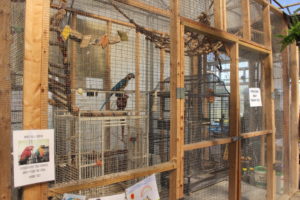
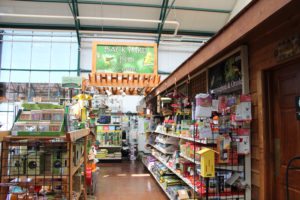
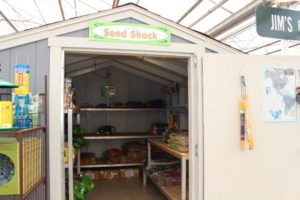




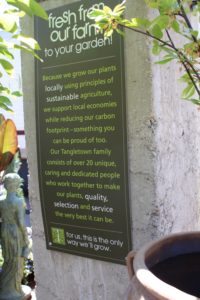

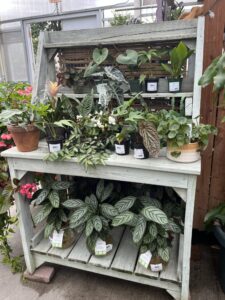


 Videos
Videos





